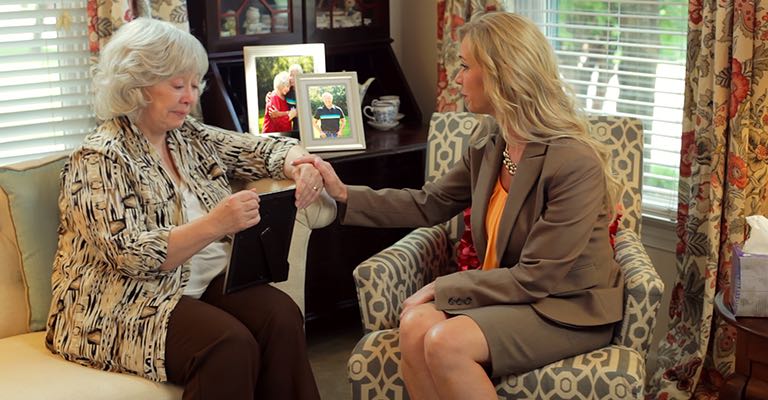
Life Transitions: Financial Planning for Widows
by Amy Pucci | February 26, 2020 | Financial Planning
Losing a spouse and the person you’ve built a life with is hard enough, but with death comes lots of decisions, paperwork, and responsibility. If you’ve recently lost your husband, we want to give you our deepest condolences. We also want to help you through this difficult time by making those onerous financial decisions easier to understand and manage through our financial planning services.
While this is in no way an extensive or all-inclusive list of the things you may need to consider after the passing of your spouse, they are the issues we see consistently in these situations that will likely come up in some form for you as well. Again, none of this is easy for anyone to deal with, even if they are not processing grief at the same time, so if you find this information overwhelming or just need advice, please feel free to reach out to us. We have a Certified Senior Advisor staff who is highly experienced in all of the following issues.
Settling of the Estate
Hopefully you and your spouse did some estate planning that will allow this process to be somewhat simple, but in almost every case—even those that go to probate, the spouse is the primary beneficiary of the deceased’s assets. However, if assets were not placed into a trust, you may need to go through the process of re-titling certain accounts or property. An estate attorney and your financial advisor will work together through this process to ensure your spouse’s final wishes are carried out and that all assets—monetary or otherwise—are distributed fairly. They will also help you update your estate plan to reflect new beneficiaries and your own wishes for these assets after your passing. Naming a financial power of attorney and a medical power of attorney is a great idea to do at this time as well and can be included in the details of your estate plan.
Social Security and Pensions
Depending on your specific financial situation, you may want to begin receiving your spouse’s social security rather than your own after their passing. This process can be done through the social security office, but a financial adviser can help you make the best decision about this. In the cases of pensions, paperwork will also need to be filed if you have survivor benefits. How this money is received and where it is placed is also an issue you will want to discuss with your financial adviser.
Life Insurance
If your spouse had life insurance, you are likely the beneficiary of the policy. Paperwork will need to be filed, including a death certificate, in order to receive that payout. Insurance payments can take a while to process, so if the money from a policy is necessary for you to make funeral or other end-of-life arrangements, an estate attorney may be able to help you expedite the process. If there are life insurance proceeds that exceed the end-of-life costs, your financial adviser can help you with financial planning services to make the best decision about how to invest or use that money for your financial wellbeing.
Budgeting
If you relied on your spouse’s income or pension and will no longer be receiving it after their death, your finances may look very different now. Depending on how involved you were in the daily finances of your household, you may need a significant amount of help readjusting your budget to your new lifestyle. If you have children you trust to help with this, we highly recommend bringing someone else in so there is another person besides yourself who is aware of your bills, income, where accounts are held, and other information in the event that you are incapacitated. This may also be the financial power of attorney you named in your estate plan and does not have to be immediate family.
Maintaining an Active Lifestyle
While this isn’t a financial issue, it is something we see come up with many of our widowed clients. It is incredibly hard to readjust to life without your spouse, but those who manage this life transition the best do so by maintaining social connections and staying active with friends and in their communities. You have every right to grieve and take time to yourself, but with time, those connections with friends and family will help you heal. Now may be the time for you to take that exercise class you’ve been wanting to try, or join the gardening club you haven’t had time for. Maybe find a group of people who travel together and go someplace you’ve always wanted to see. Whatever you do, maintaining a healthy and active lifestyle is just as important to your wellbeing as your financial stability.
If you need help during this difficult time, either with financial planning services or just to provide some direction, please give us a call at (757) 436-1122 and we will be happy to sit down with you to discuss your needs and how we can help.